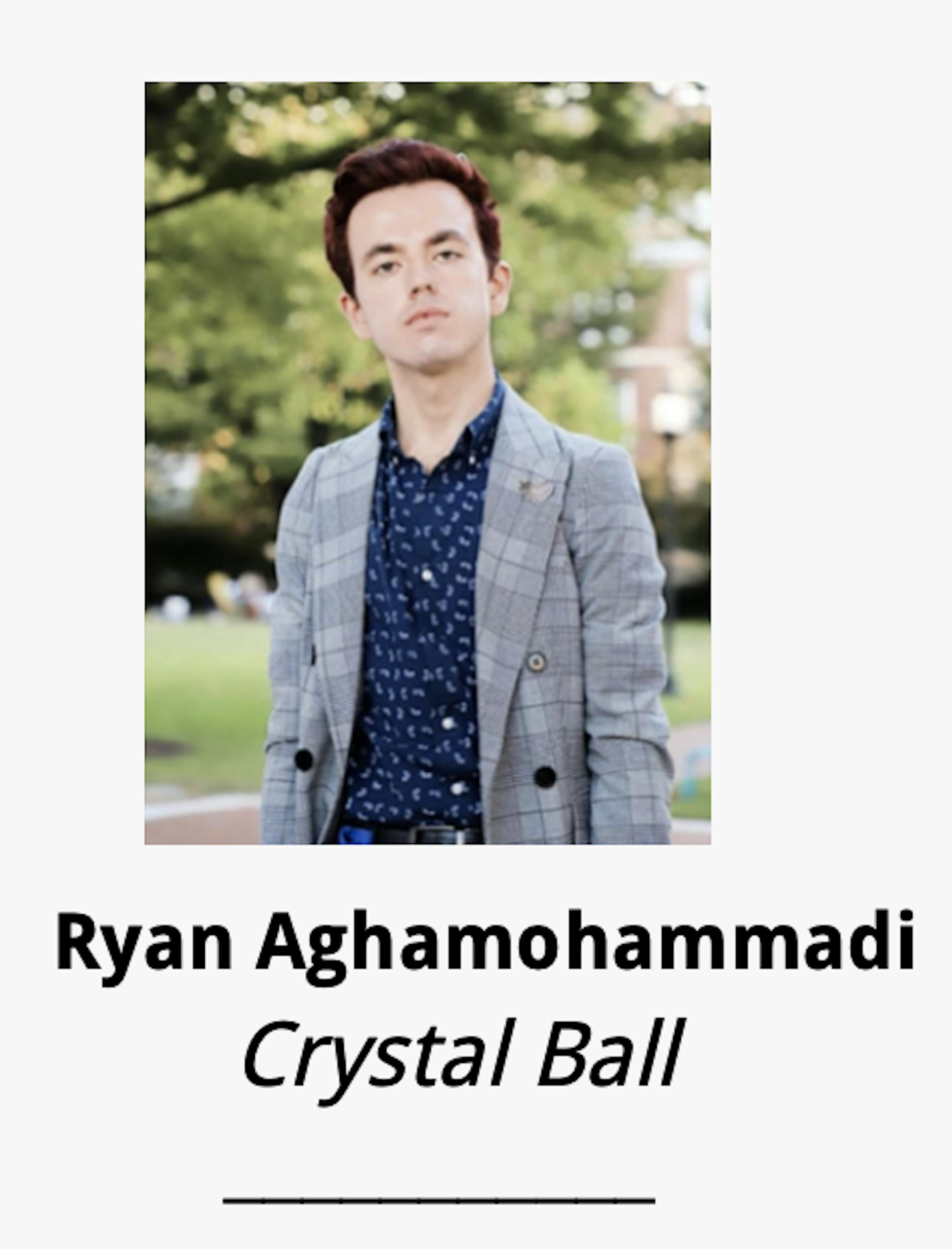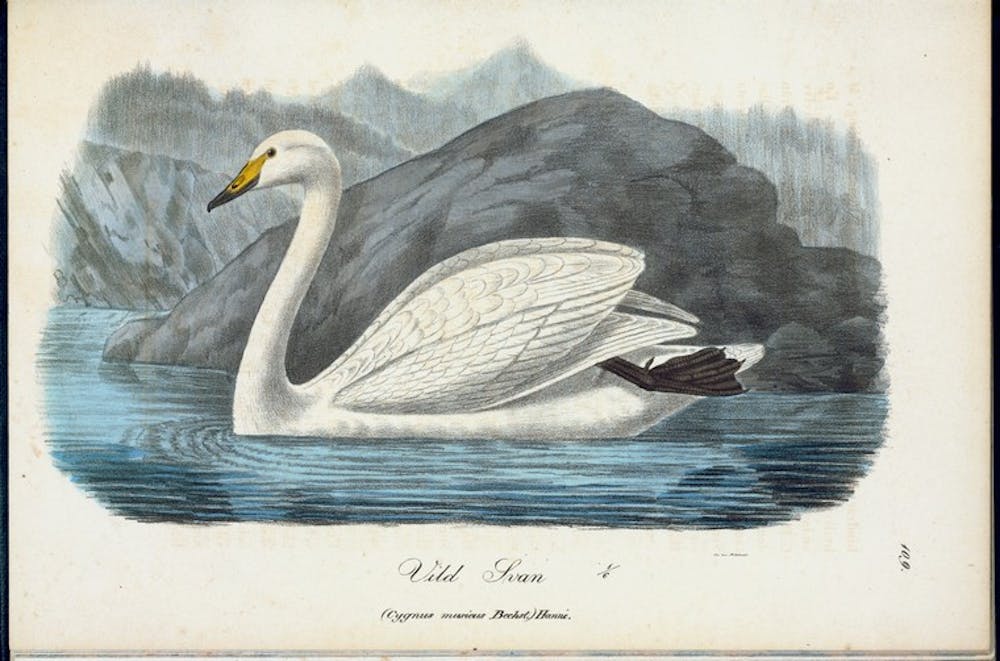
On Tuesday, I consider giving up writing forever.
“Forever?” asks my friend from home.
“Forever,” I say.
“Surely you won’t, it’s your favorite thing to do,” he says.
I say, “Forever,” but he doesn’t get it.
I slide open the window and tell the wind that this is what I’ve decided. I alphabetically organize each of the books on my desk, turning the covers toward the wall so I can’t read them. I cord my hands through the spirals of my notebook, bending the plastic so that all the pages fall in a heap on the floor.
I take a look at the mess, all 150 pages spread across the hardwood, and I bend down to start picking them up. I think, This is going to take forever. When I’ve compiled all of them in my hands, I look down and I’m holding nothing. The pages have disappeared.
How do we measure the length of forever?
A year ago, right before we were all sent home, I was sitting on the Beach with a friend or two, staring up at the egg moon-veiled sky, at the fog dropping on the concrete like hammer, at the unmarred lines of my journal, scribbling inkblot circles on the paper. I turned to my friend and said, “I wonder how long this will last.”
But whether I was talking about my creative block, or the virus, I can’t remember. They said nothing. Or maybe they said everything? What was it, everything or nothing? What was I writing? Everything or nothing?
All my memories from the past year have stretched and folded over each other. Whenever I think of a memory from a few days ago, it turns out to be something that will happen in a few days. Yesterday, I reached for a book I hadn’t bought yet, looked in the fridge for produce not yet in season, went to read over a poem that I had not yet written. Tomorrow, I will plan to do something I’ve already done and then be surprised when I find it already crossed off my list.
Today is always undefined. What to do with all this, the echoes of a not-quite-yet near future, the rumblings of a not-yet past, the noncommittal of our very moment to be something?
I sit down to write. For once, I feel like perhaps time will be on my side. The cursor of the document blinks like a heartbeat. I type a word and then delete it. I type a sentence and then delete it. I write four pages about things being deleted and then delete that too. For a moment, it feels like all the words cracked on the screen and then were swept away. My next-door neighbor lets out a feral scream. The cursor-heart keeps beating. I type another word and then split it in two: for ever, a heartbeat.
Most versions of legends and fairy tales we tell now end with some sort of Happily Ever After. Cinderella marries her prince. Sleeping Beauty wakes up. Rapunzel comes down from her tower. And then nothing ever changes. They are stuck in a perpetual loop of this is how things ought to be.
The narrators of these stories summate the rest of these characters’ lives with a single phrase. They are happy for ever without change and without any deviation from the script their lives have been prescribed to follow. What an awful thing to condemn someone to, a future you consider wonderful because it will always be the same.
Some weeks ago, or maybe it will be some weeks in the future, retrieving my belongings from storage, I reach into a box not opened in 10 months and pull out the shards of an antique ceramic swan. First comes a wing, then the neck, the beak, the tail and more until I have all the little broken bits of a bird on my bed. There’s so many pieces and only one me. I have no hot glue gun or other adhesive to put this bird back together again.
I feel like I should scream or cry, but it’s just a fake bird that I bought at a rummage sale. I pick each piece from my bed and place them in a trash bag. The last piece slices a small line on the pad of my finger. A small bead of blood follows the shard into the trash. Nothing, I mean nothing, would have salvaged that bird. Even if I had gone to the hardware store, picked up some glue, repaired it, it would never have been as it was. It will be broken for ever.
“Why,” M. asks, “do you want to quit writing forever?”
I say, “I don’t know.”
He says, “No, you know why, tell me.”
I say, “I couldn’t put that bird back together again. Even a year ago, I knew it would be broken, and that I wouldn’t be able to fix it.”
M. asks, “Why is it your job to fix it? Why is it your job to fix anything you did not break?”
I hear a knock at the door. It’s all the king’s horses and all the king’s men. They push their way past me and pick up the shards of the swan from my bed. They cannot put it back together again. A horse chews at the plants growing on my windowsill. One of the king’s men brews himself a cup of tea and makes nothing for anyone else. Another tracks mud into the room. The commander shouts something I cannot hear, but what sounds like for ever, and all the king’s men start crushing the pieces of the swan under their feet.
I close my eyes. When I open them, all the king’s horses and all the king’s men are gone. There is a pearl iridescence covering my entire floor like fresh snow. With my finger, I begin to trace letters in the dust. This story starts with forever.
Ryan Aghamohammadi is a junior studying Writing Seminars from Woodbury, Conn. His column uses the occult and the supernatural to cast a light on his ongoing journey of self-discovery.





